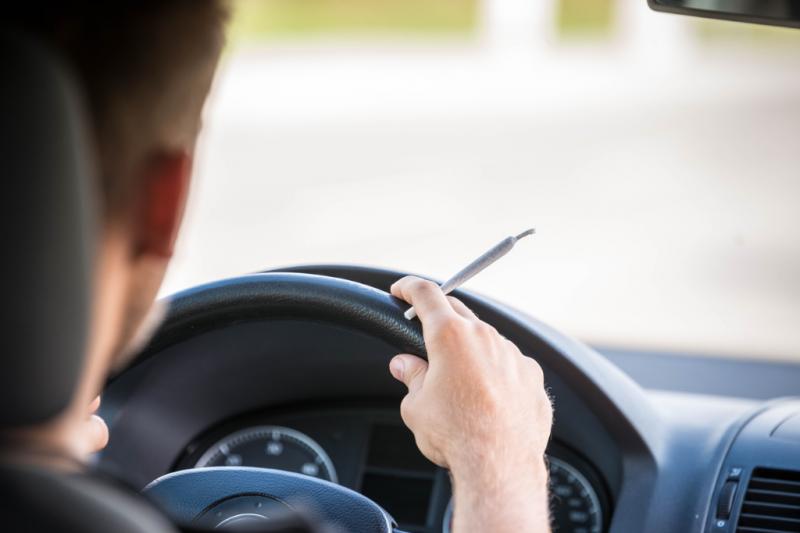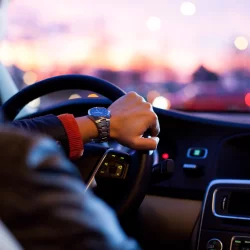How Cannabis Affects Your Driving

Lighting up a joint while driving might sound enticing—relaxing even. However, people are quick to forget that cannabis does have psychoactive properties that affect your mind and body. In which case, the effects on you would dictate how well you drive.
Yet, cannabis affects everyone differently.
With cannabis legalization emerging in many places like Canada, it's brought many legal questions regarding the level of impairment with cannabis. As a result, it's left any impaired driving lawyer and the legal system uncertain about how to navigate impairment laws with cannabis.
Learn how cannabis affects your driving to understand how it can potentially count as impaired driving.
What is Cannabis?
Notably known as marijuana, among other various names, cannabis originates from the cannabis plant found native to Central and South Asia. From this plant, many have used this psychoactive drug for centuries to use for traditional medicines and recreational purposes. Cannabis has been used by smoking, but there are other methods to get the effects of cannabis. These include vaporizing and putting it into food or beverages and concentrated oil extracts.
What Comprises Cannabis?
The reason cannabis is rather tricky to navigate regarding driving under its influence stems from its various unique makeups. Cannabis comprises more than 120 components known as cannabinoids, which interact with your endocannabinoid system.
Your endocannabinoid system plays an important role in your central nervous system and synaptic plasticity. In which case, it's been known to help regulate various functions and processes, such as sleep, mood, appetite, memory, reproduction and fertility.
Most of the cannabinoids that interact mainly with your endocannabinoid system are cannabidiol (CBD) and tetrahydrocannabinol (THC). CBD is known to be more of the medicinal side of cannabis since it mainly helps against inflammation and pain. It doesn't get you high with minimal side effects. Meanwhile, THC is the psychoactive side of cannabis that gives you that high feeling where you feel relaxed and euphoric.
It's why testing cannabis for driving impairment can be rather tricky. Somone can have pure CBD oil without effects on their cognition but could fail a roadside test just because it generally detects cannabis. It's circumstances like that where unnecessary DUIs can occur - especially for folks who need CBD for medicinal use, mainly for pain management.
What Are Side Effects of Cannabis?
Typically, any side effects from cannabis stem from THC - not CBD. There is a reason why people love cannabis with high THC. It elicits feelings of giddiness, relaxation, heightened appetite, and even focus and creativity.
However, the THC in cannabis is not without its adverse side effects. For some, it can result in coordination issues, delayed reaction time, anxiety, and drowsiness. These side effects could potentially be dangerous to be experiencing while driving if they were to occur.
Does Cannabis Affect Driving?
The adverse side effects of high THC in cannabis can most certainly affect your driving.
From this cannabinoid component, drivers might be too drowsy to drive, akin to practically sleeping on the wheel if the THC concentrate was incredibly high. Furthermore, part of its short-term side effects is a slower reaction time, which would prove dangerous if you needed to stop suddenly and could lead to a potential accident. Plus, it doesn't help your ability to pay attention and impairs your coordination, so you become unaware of the drivers around you and not fit to handle road conditions.
It's safe to say that cannabis can negatively affect your driving. Since it impairs so much of your body and mind, it can have horrible consequences like accidents, serious injuries, or, worst-case scenario, even death.
With cannabis gradually becoming legalized in various places, it's become a contentious issue regarding being under its influence while driving. There is no doubt that cannabis with high THC can negatively affect how you drive, with potentially dangerous outcomes for you and others. Yet, cannabis doesn't always have THC. Some folks only use CBD and could wrongfully end up with a DUI for a roadside test that doesn't consider cannabis on its components but rather as a catch-all. Until lawmakers can further iron out cannabis laws relating to driving impairment, it's probably best not to use cannabis while driving to be on the safe side of the law and protect others and yourself.
More to Read:
Previous Posts:



